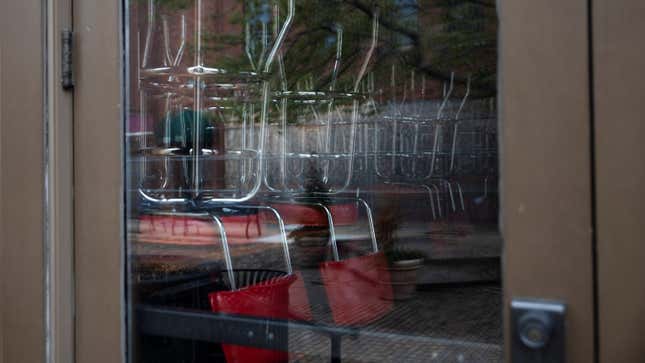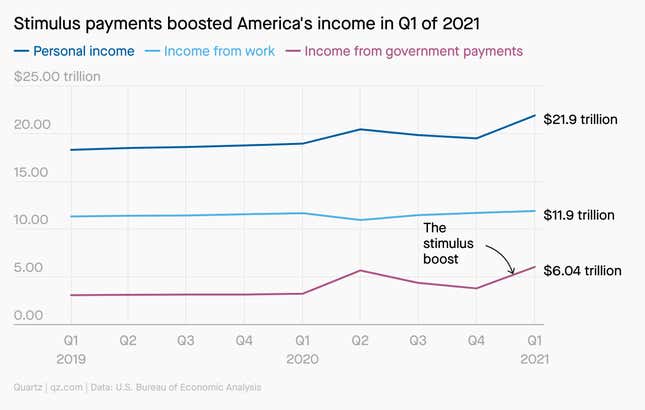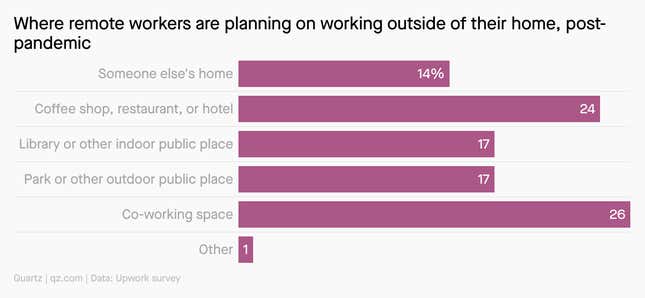Hello Quartz readers,
With more than 140 super-rich persons, India is home to the world’s third-highest number of billionaires—it added 40 of them just last year. Now, as thousands of Indians struggle to pay hospital bills, buy medicine, and even afford cremations for their family members, most of these billionaires are MIA. Those that do get involved are contributing through their companies’ corporate social responsibility (CSR) pools, not out of their own pockets. Indian law requires large companies to spend part of their net profits on CSR activities.
Thousands of middle- and lower-middle-class Indians have spent the past several weeks trying to help family, friends, acquaintances, and even strangers by contributing to charitable organizations and frantically mobilizing resources for patients. Calling around for oxygen is common; cooking meals for sick neighbors routine. Meanwhile, an April 26 report in The Times of India noted that eight private jets, costing 72 lakh rupees ($96,941) each, arrived in London from India 24 hours before the UK announced a travel ban against the country.
Indeed, private jet providers say their services have been in high demand, as many of India’s super-wealthy try to get out of the country. “Whoever can afford to take a private jet is taking one,” Rajan Mehra, chief executive officer at New Delhi-based private jet firm Club One Air, told Bloomberg.
Among those who found safety abroad is billionaire Adar Poonawalla, the CEO of Serum Institute of India, which is responsible for supplying a majority of the doses for the country’s vaccination program. The “vaccine prince” absconded to London “for an extended period of time,” according to an interview he gave The Times that published May 1. After receiving backlash, Poonawalla quickly clarified on Twitter: He will now only be gone for a “few days.” —Niharika Sharma
More from Quartz India:
- Desperate for oxygen, Indians are falling prey to scams.
- Finding a hospital bed is a daily battle in Delhi.
- The government is trying to censor complaints on social media.
- India is suffering from woefully outdated science.
- Its second wave may not peak until June.
- And its vaccine program has glaring data issues.
- That breakdown now has Africa’s vaccine drives scrambling.
- Here’s how you can help.
Have money, *will* travel
Even before the pandemic, the world’s wealthy seemed to move wherever they want. While a person’s visa status is sometimes a sensitive issue, the wealthy often have pathways for legal migration that the rest of the world does not:
🤑 They invest their way in. Twenty-four countries, including the UK and UAE, have Citizenship Investment programs. Those who invest a certain amount—usually around $200,000—can, depending on the country, enjoy long-term residency or eventually become citizens.
✌️ They’re already dual citizens. Whether they were born into dual citizenship or got it through marriage or long-term residence, holders of multiple passports can more easily protect their holdings, enjoy hassle-free traveling, and set up a plan B.
🌐 They’re on other kinds of visas. Obtaining a US B visa, the kind needed for those conducting business or receiving medical treatment, is a lot easier if you’re wealthy.
😎 They just don’t worry about it. If you’re undocumented, running your own business is a surprisingly easy way to make money. A 2008 article in Reuters suggested that some 20,000 Americans who make $100,000 or more were undocumented or on expired visas.
Saving small business

“Surviving is a competitive advantage in and of itself. It’s very discouraging to see so many businesses that we used and patronized, especially restaurants, that did not make it in the last year. I can’t really emphasize enough that cheap money by the government is really helpful for small businesses.” —Greg Hunicutt, owner of a construction business in Houston, Texas
The pandemic has shuttered small businesses at frightening rates, with Black- and women-owned firms hit disproportionately. While the official data are still trickling in, academic surveys last year showed mass temporary closures that some business owners expected to become permanent. Yelp reported that at least 163,000 businesses on its platform closed temporarily, while the US National Association of Restaurants found that 110,000 eateries had shut down permanently.
Not all small businesses are restaurants and bars, but the challenges they face in the changing economy exemplify many of the experiences faced by small firms in an increasingly digital world. And the strategies for supporting them apply more widely, too. In our guide to how small business bounces back, Tim Fernholz looked at how Covid-19 exposed small businesses’ vulnerabilities—and the way to fix them.
✦ Speaking of small businesses, snagging a Quartz membership is the best way to support ours. Sign up for a free trial today.
Three dinner-table convos
⚕️Moderna’s founder is surprised by its vaccine success. When Derrick Rossi started Moderna to explore the medical uses of mRNA, he never imagined the world would discover it through a vaccine: Vaccines don’t make money, and aren’t all that exciting. Then Covid-19 happened, and Moderna went from an unknown company to a globally recognized brand, and mRNA from an obscure technology to arguably the most exciting medical innovation in decades. In an interview with Quartz, Rossi predicts we’ll have the first non-vaccine mRNA therapeutic drug within five years.
💰 Pandemic aid created the biggest jump ever in US disposable income. Compounded annually, Americans’ disposable income rose by 67% during the first quarter of 2021, and stimulus payments almost wholly accounted for that $2.36 trillion bump. The data convey some good news: At the end of successive bleak quarters, income from wages didn’t crash. But the buoyancy of the American economy is still, in large part, due to the government’s willingness to spend.

🏘️ Sometimes WFH means WFSEH. A new report from freelancing platform Upwork found that 22% of those who plan to work remotely post-pandemic are planning to work away from their own abode at least part of the time. Coworking space? Sure. Coffee shop? Naturally. But new trends are emerging, too: Some 14% of those planning to work remotely expect to work from someone else’s home.

You asked
How much money is AstraZeneca making from its vaccine?
In an upbeat earnings report last week, the Anglo-Swedish drugmaker reported $275 million in revenue from its vaccine in the first three months of the year, meaning the vaccine accounted for 4% of the company’s $7.3 billion in total revenue during the quarter.
AstraZeneca’s vaccine, known as Vaxzevria, is one of four authorized for use against Covid-19 in the EU. (It’s also been one of the more controversial ones.) The company pledged not to profit from the vaccine during the pandemic, and is selling its shot at a far lower price than competitors: around $4 per dose vs. $25 to $37 for Moderna, for example. But nothing is stopping AstraZeneca from making its own call on when the pandemic is over, meaning it could then sell its vaccine at a profit. That could be as early as this summer.
Quotable
“I’ve learned a lot about my son during the pandemic. The biggest takeaway is how resilient he’s proven to be, and that makes me proud.” —Lisa Wolfson
When lockdowns hit last March, Lisa Wolfson faced an indefinite physical separation from her son, who is severely impacted by autism and lives at a residential school near her home. Almost overnight, their interactions were reduced to evening video chats, during which mother and son found a new way to connect through drawing. “Tonight, I’m to draw purple hexagons, yellow stars, blue squares, two Barneys, two Elmos, a train and a bus,” Wolfson writes in a thoughtful accounting of the pandemic’s toll on their relationship. “I’ve wondered how much he understands about the pandemic and figured not much, though he asks me to draw masks on the shapes.”
Essential reading
- The latest 🌏 figures: 153.7 million confirmed cases; 90.4 million classified as “recovered;” 1.17 billion vaccine doses administered.
- Need for speed: Why has South Africa’s vaccine rollout been so slow?
- Like a good neighbor: How to support local small businesses during the reopening.
- Somebody stop me: The CDC’s new mask guidelines are a little confusing.
- Immersion therapy: Are you ready for Zoom’s Immersive View?

Our best wishes for a healthy day. Get in touch with us at needtoknow@qz.com, and live your best Quartz life by downloading our iOS app and becoming a member. Today’s newsletter was brought to you by Niharika Sharma, Alex Ossola, Tim Fernholz, Annalisa Merelli, Samanth Subramanian, Michelle Cheng, Annabelle Timsit, Lisa Wolfson, and Kira Bindrim.
